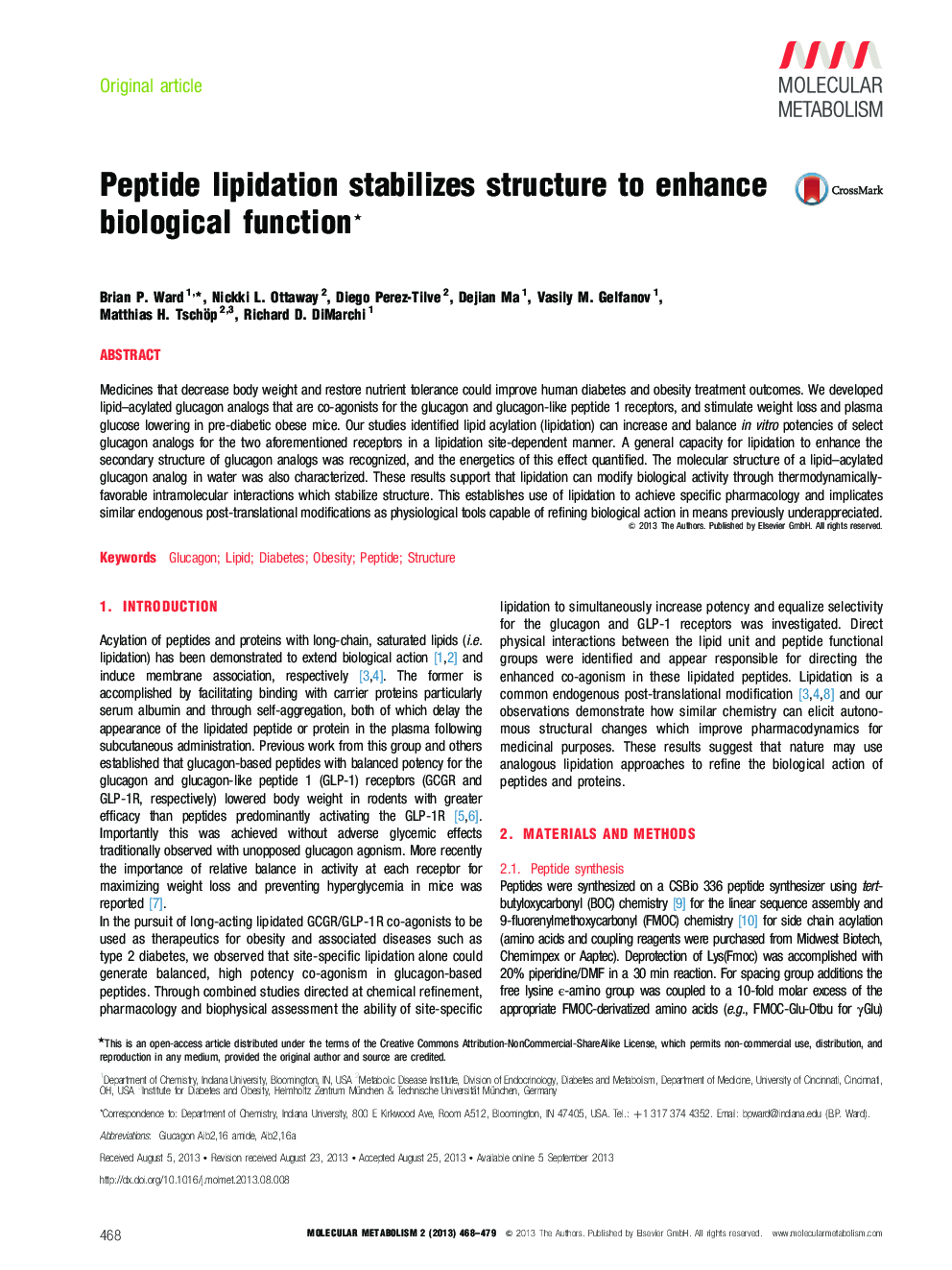| Article ID | Journal | Published Year | Pages | File Type |
|---|---|---|---|---|
| 3001652 | Molecular Metabolism | 2013 | 12 Pages |
Medicines that decrease body weight and restore nutrient tolerance could improve human diabetes and obesity treatment outcomes. We developed lipid–acylated glucagon analogs that are co-agonists for the glucagon and glucagon-like peptide 1 receptors, and stimulate weight loss and plasma glucose lowering in pre-diabetic obese mice. Our studies identified lipid acylation (lipidation) can increase and balance in vitro potencies of select glucagon analogs for the two aforementioned receptors in a lipidation site-dependent manner. A general capacity for lipidation to enhance the secondary structure of glucagon analogs was recognized, and the energetics of this effect quantified. The molecular structure of a lipid–acylated glucagon analog in water was also characterized. These results support that lipidation can modify biological activity through thermodynamically-favorable intramolecular interactions which stabilize structure. This establishes use of lipidation to achieve specific pharmacology and implicates similar endogenous post-translational modifications as physiological tools capable of refining biological action in means previously underappreciated.
